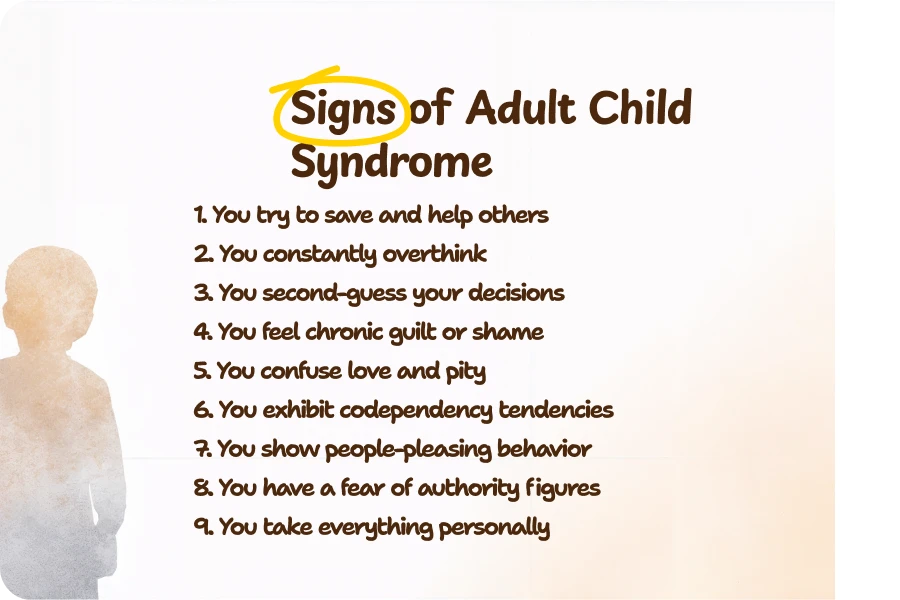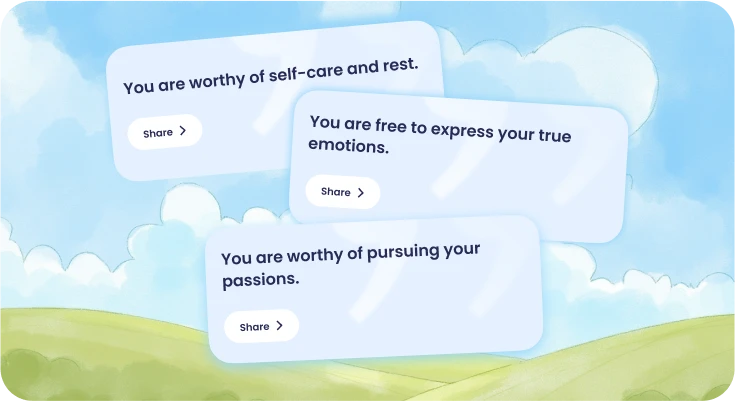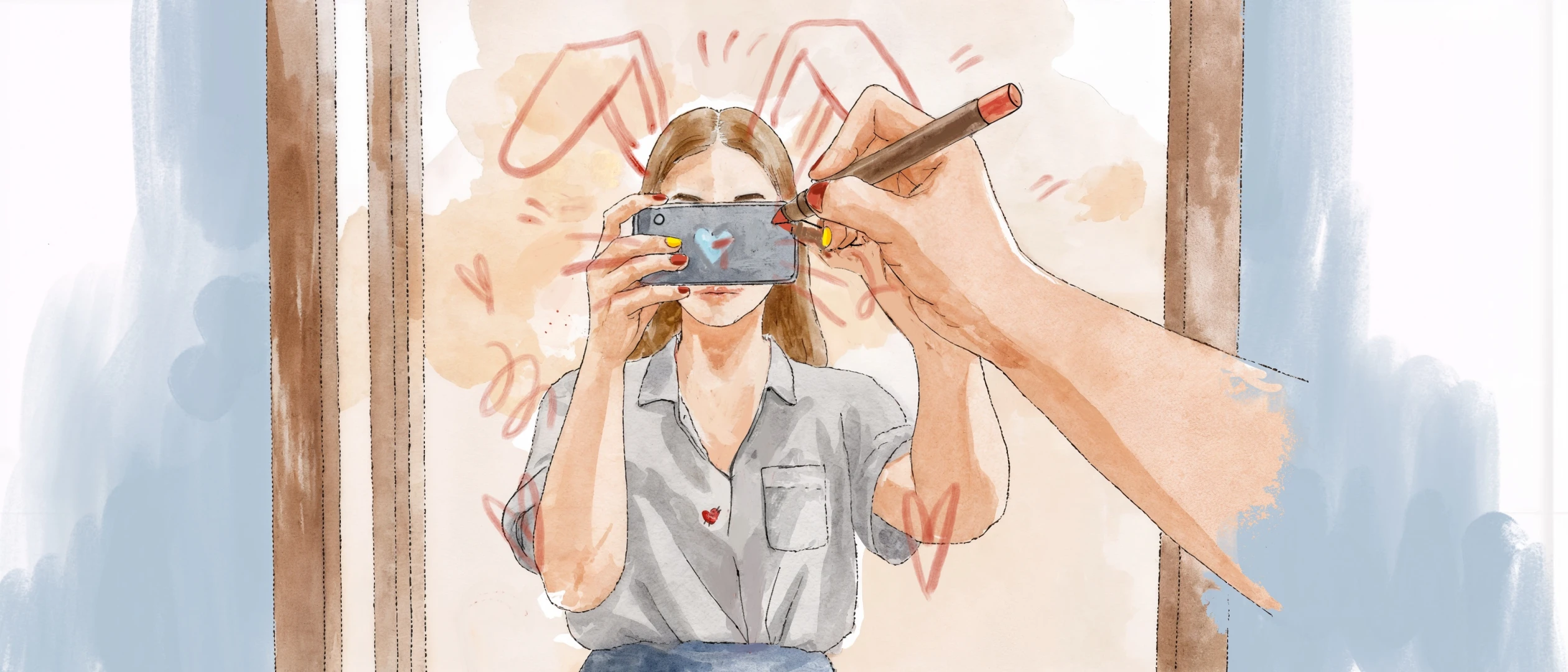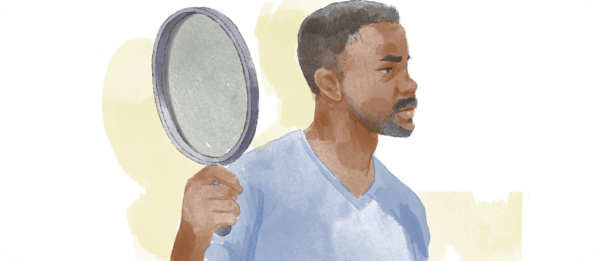Have you ever wondered, “Why do I feel more child-like around other adults?” Or maybe you constantly feel burdened with doubt, guilt, and self-blame and often try to “save” other people? These could be possible signs of adult child syndrome.
Let’s find out why you may think, “I still feel like a child mentally,” and how it can impact your life.
What Is Adult Child Syndrome?
Adult child syndrome refers to a set of emotional and behavioral patterns seen in adults who grew up in dysfunctional, neglectful, or emotionally unsafe families. These adults often carry childhood coping strategies into adulthood, leading to difficulties with emotional regulation, self-esteem, boundaries, and relationships.
Originally, adult child syndrome described the experiences of adults who grew up in homes where one or both parents had alcohol use disorder, according to the Dysfunctional Families World Service Organization [1]. Today, the term has expanded, and now it applies to adults who were raised in any kind of dysfunctional or abusive household. Besides alcohol use disorder, the parent(s) may have had mental health issues like PTSD, depression, or personality disorders such as narcissistic personality disorder, borderline personality disorder, or histrionic personality disorder.
Typically, when a parent experiences these mental health conditions, it can lead to physical or emotional abuse, neglect, or toxic family interaction patterns. Consequently, children in these situations are more likely to develop adult child syndrome later in life.
According to childhood trauma statistics 2024, having a parent with a mental health condition or substance misuse is among the major causes of adverse childhood experiences (ACE).
9 Signs and Symptoms of Adult Child Syndrome
While every person’s experience with adult child syndrome is unique, there are certain common signs and behaviors linked to it. Some of these may look like this:
1. You feel the irresistible urge to save and help others
Do you easily get involved in other people’s problems? Do you sometimes even feel more alive during a crisis and conflicts?
These examples are common for adult child syndrome. It’s caused by “role reversal” in one’s childhood, where the child feels responsible for taking care of the parent. This, in turn, can lead to blurred boundaries and parentification trauma, otherwise known as the trauma that comes from being a parentified child within the home [2].
As an illustration, imagine a family where one or both parents struggle with their own needs due to substance misuse, mental health conditions, or emotional unavailability, let alone meeting the needs of a child on a consistent and reliable basis.
As a result, the child assumes the role of caregiver and provides emotional support to a parent at a young age. This can make the child feel responsible for another person’s happiness, and prioritizing their own needs evokes guilt.
Looking for more quizzes? Get insights about yourself with the Breeze self-discovery test about your personality, childhood trauma, attachment style, and much more.
2. You constantly overthink
For a person with adult child syndrome, overthinking can show up in a variety of ways:
Excessive self-reflection
Young adults with adult child syndrome can engage in constant deep self-reflection, questioning their worth, actions, and relationships.
For example, they may obsessively wonder if they unintentionally offended someone in past conversations or interactions. It can show up as a constant cycle of asking, “Did I do something wrong?” or “What did they really mean when they said that?”
This over-analysis of adult child syndrome may lead to anxiety, self-doubt, feeling like a failure, and avoidance of future social interactions.
Catastrophizing
Overthinking makes people anticipate the worst possible outcome in any situation. This is especially true for people with adult child syndrome who were raised in a dysfunctional environment where they had to prepare for chaos, unpredictability, or rejection to feel emotionally safe.
As an example, if someone doesn’t immediately return their call, they might jump to the conclusion that they’re being rejected or abandoned or have done something to upset them, even though there might be no evidence to support that.
Digging into past events
Overthinking in adult child syndrome can also involve repeatedly revisiting past events, whether childhood memories or recent experiences, always carrying emotional baggage.
People might constantly replay past moments of failure, rejection, or trauma, trying to find a way to make sense of them or ease their emotional pain.
Unfortunately, this keeps people with adult child syndrome stuck in the past and prevents them from moving forward in a healthy way or living in the moment. This can create a lens through which one experiences the world, filtered through the pain of the past.
3. You second-guess your decisions
A key trait of adult child syndrome is the inability to make decisions without excessively doubting oneself or feeling anxiety. An adult child avoids making decisions that benefit them because, as kids, they were punished or called into scrutiny for initiative or self-interest. Instead, they wait for others to give them what they need or sacrifice their needs, so they can’t be blamed.
This can show up in simple decisions such as what to eat or what to wear, but also extends to bigger life choices like career moves, relationships, or financial decisions.
For example, imagine Emily, who is offered a promotion at work. It’s a great opportunity with more responsibility and a higher salary. Emily might initially feel excited about the offer, but within hours, she starts to feel overwhelmed and unsure. She may think, “What if I’m not ready for this? What if I fail? Maybe I should stay in my current position to avoid messing things up.”
The more Emily thinks about it, the more she second-guesses her ability to handle the new role. She may wonder, “What if my colleagues think I’m not qualified? What if I disappoint my boss? Maybe I’m not cut out for this job.” She spends hours researching and reanalyzing the pros and cons, but still can’t make up her mind. The fear of making the “wrong” choice is paralyzing, and overthinking becomes a way to try to control the uncertainty.
4. You feel chronic guilt or shame
Do you judge yourself without mercy? Have you ever wondered, “Why do I feel so guilty?” It’s another symptom of adult child syndrome. Such people may feel a pervasive sense of guilt or shame because they feel unworthy or not good enough. At the same time, the adult child doesn’t judge others nearly as harshly as themselves.
The thing is that in homes with dysfunctional family roles, children could be blamed for things or made to feel responsible for things beyond their control. This results in deep-rooted feelings of guilt and shame, as they carry the burden of believing that they are somehow at fault for the family’s problems. Children are already predisposed to feel responsible for events that occur in their world due to development, so if parents do not aid in the reassurance of events in and out of a child’s control, it can become cumbersome on their developing egos and sense of self.
Adult child syndrome may also lead to birthday depression due to unresolved childhood trauma and emotional neglect. Birthdays can trigger feelings of loss, unmet needs, or disappointment. Meanwhile, the pressure to be “happy” or celebrate can feel overwhelming, causing sadness or anxiety.
5. You confuse love and pity
Do you find yourself in relationships where you are “the fixer” or the one who feels responsible for another person’s emotional state? The reason is that in dysfunctional families, love is quite often communicated as conditional. Parents may teach children that they will only receive affection if they meet certain expectations.
These may be manipulations and conditions like being the “good” child for narcissistic parents or taking care of an emotionally immature parent.
That’s why people with adult child syndrome may seek love through pity. They may subconsciously believe that by fixing or saving someone, you’ll receive love or validation in return.
Typically, it creates a deep sense of insecurity in the child. They may feel like they must earn love rather than receive it unconditionally. As they grow into adulthood, they can mistakenly equate love with anything that feels like approval or attention, even if it’s mixed with pity or patronization.
Moreover, as adults, they might carry these expectations into their relationships, confusing care and support with love. At the same time, people with adult child syndrome may feel uncomfortable or insecure when others show care without expecting something in return. This can feel like suspicious behavior.
6. You exhibit codependency tendencies
Continuing the previous point, confusing love with pity can create codependent relationships. This happens when a parent and a child rely on each other in an “unhealthy way”.
For instance, the parent may feel like they “need” the child to take care of them, while the child may feel needed but not truly valued for who they are. Codependency can lead to a cycle of emotional exhaustion and dissatisfaction for people with adult child syndrome.
In dysfunctional families, parents’ emotions may be extreme or unpredictable. It can make children feel responsible for handling others’ feelings. This, in turn, may lead to emotional dependency, where the child’s sense of self is tied to their parents’ well-being or emotional state. This can evolve into adult relationships for the child with adult child syndrome.
Expert Insight
Codependency is a legacy of generational traumas passed down within families. More often than not, a person experiencing adult child syndrome has been a part of a family with continuing generational traumas, which makes it difficult to break the cycle of toxicity. Codependency is the experience of feeling as if emotions cannot be handled autonomously. One’s own faith in themselves to sit with discomfort and heal from uncomfortable emotions is weak, and their family system’s perpetuated the message “You need someone/ You need to do X for someone in order to be worthy of love and kindness.” Codependency in this nature could look like the constant need to seek approval or reassurance before making decisions, even if they are decisions that have nothing to do with the other person, love bombing with the belief that grandiosity is necessary to keep another around, etc. It can also blur the lines of what is right and wrong, keeping people locked into unhealthy relationships far into adulthood.
Katherine Scott
Mental health professional
7. You show people-pleasing behavior
Do you find it difficult to tell people “no”? Do you always try to maintain peace at all costs? This is how childlike behavior in adults can manifest itself.
The reason is that people with adult child syndrome may have grown up in unpredictable or emotionally unsafe environments. This, in turn, can lead to a deep fear of abandonment or rejection. That’s why people-pleasing becomes a way to avoid conflict and secure love and acceptance, sometimes at the cost of their own needs.
People with adult child syndrome may also fear intimacy due to insecure attachment styles or commit to unrealistic levels of emotional dependency.
8. You have a fear of authority figures
The fear of authority figures is common among people with adult child syndrome due to their early experiences. Authority figures like parents or caregivers may be either overly controlling, harshly critical, or emotionally unavailable. For a child, this creates a fear of punishment, judgment, or rejection in response to any perceived mistake.
For example, if a father as an authority figure is emotionally or physically abusive, their child may think “I hate my dad” and learn to associate authority with danger or discomfort. Later, it may carry over into adulthood. As a result, the adult child may create a generalized fear or extreme disdain of people in positions of power or control.
9. You take everything personally
Another common behavior in adult child syndrome is the tendency to take everything personally. The reason is that adult children often grow up in unstable or neglectful environments, making them hyper-vigilant and untrusting of good intentions.
They may also face emotional or physical abuse or constant criticism. It, in turn, may lead them to interpret neutral or critical comments as personal attacks.
In addition, people with adult child syndrome may have feelings of inadequacy and low self-esteem. They may feel worthless, wondering, “What is wrong with me?” This fear of rejection makes negative remarks feel like proof that nobody likes them.
For example, Emma’s partner has a stressful day at work and comes home feeling irritable. Emma may immediately think, “He’s upset with me. What did I do wrong?” She tries to apologize and fix the situation, even though his mood has nothing to do with her.
A defense mechanism typical for those experiencing adult child syndrome can explain Emma’s reaction. In childhood, Emma might have had to tiptoe around an emotionally unstable parent who blamed her for their mood changes. As an adult, Emma assumes her partner’s mood is a reflection of her behavior.

How To Overcome Adult Child Syndrome?
Adult child syndrome treatment includes improving emotional regulation, setting boundaries, learning how to love yourself, and creating healthy relationships:
1. Recognize and Map Your Patterns
- Track emotional triggers for a week. Note situations that provoke guilt, anxiety, or over-responsibility.
- Ask yourself after interactions: “Did I respond from my authentic self or from learned survival patterns?”
- Identify recurring childhood messages: “You must always please,” or “Your feelings are too much.”
Breeze guided journaling can help you learn how to feel your feelings and develop healthier coping mechanisms. Even 5 minutes of journaling can reveal important patterns

2. Set Boundaries To Build Healthy Relationships
You may start with low-stakes situations, like pausing before answering texts or declining small favors. Prepare short, assertive statements like:
- “I’m not available for that right now.”
- “I need some time to think before I respond.”
Breeze personalized positive affirmations may also come in handy. You can say them daily, write them in a journal, or use them before difficult conversations. For example:
- “My needs and feelings are valid, and it’s safe to express them.”
- “I can say no without feeling guilty or selfish.”
- “Healthy boundaries strengthen my relationships, not weaken them.”
- “I am allowed to protect my energy and emotional space.”
- “It’s okay to prioritize my well-being while caring for others.”
- “I attract people who respect my boundaries and choices.”
- “Saying no is an act of self-love, not rejection.”
- “I am responsible for my emotions, not others’ reactions to my boundaries.”

3. Develop Emotional Awareness
This practice can help you ground yourself and reduce your physical and emotional reactivity.
- Spend 5 minutes labeling your emotions and rating intensity (0–10).
- Notice tension in the body; ask, “Is this feeling mine or someone else’s?”
- Before reacting in triggering situations, take 3 deep breaths and ask, “What do I truly need here?”
4. Seek Mental Health Professional’s Guidance
Working with a therapist or counselor can help you process childhood wounds and develop skills for maintaining healthy relationships. Professional guidance provides a safe space to explore patterns, practice boundaries, and build emotional resilience in the adult world to change your life.
Katherine Scott, M.Ed/Ed.S, LMFT, recommends the following practices that can help you:
“In order to successfully break out of generational trauma that fuels adult child syndrome, it is vital to cultivate self-awareness. This can be in many forms, but seeking out a therapist who can serve as a sounding board for creating a new ‘normal’ when in a relationship with others can be extremely powerful. Also, reading books, listening to podcasts, and seeking community with people who have experienced similar family styles can aid in the dismantling of harmful ways of seeing yourself and the world around you. Often, those experiencing this syndrome feel incredibly alone. So, the more you can foster a sense of togetherness with people who have survived similar experiences or can provide different perspectives can be monumental toward one’s healing and growth.”
Sources
- Adult Children of Alcoholics & Dysfunctional Families World Service Organization. Am I an Adult Child?
- Lisa M. Hooper. Parentification. January 2014
Disclaimer
This article is for general informative and self-discovery purposes only. It should not replace expert guidance from professionals.
Any action you take in response to the information in this article, whether directly or indirectly, is solely your responsibility and is done at your own risk. Breeze content team and its mental health experts disclaim any liability, loss, or risk, personal, professional, or otherwise, which may result from the use and/or application of any content.
Always consult your doctor or other certified health practitioner with any medical questions or concerns
Breeze articles exclusively cite trusted sources, such as academic research institutions and medical associations, including research and studies from PubMed, ResearchGate, or similar databases. Examine our subject-matter editors and editorial process to see how we verify facts and maintain the accuracy, reliability, and trustworthiness of our material.
Was this article helpful?






